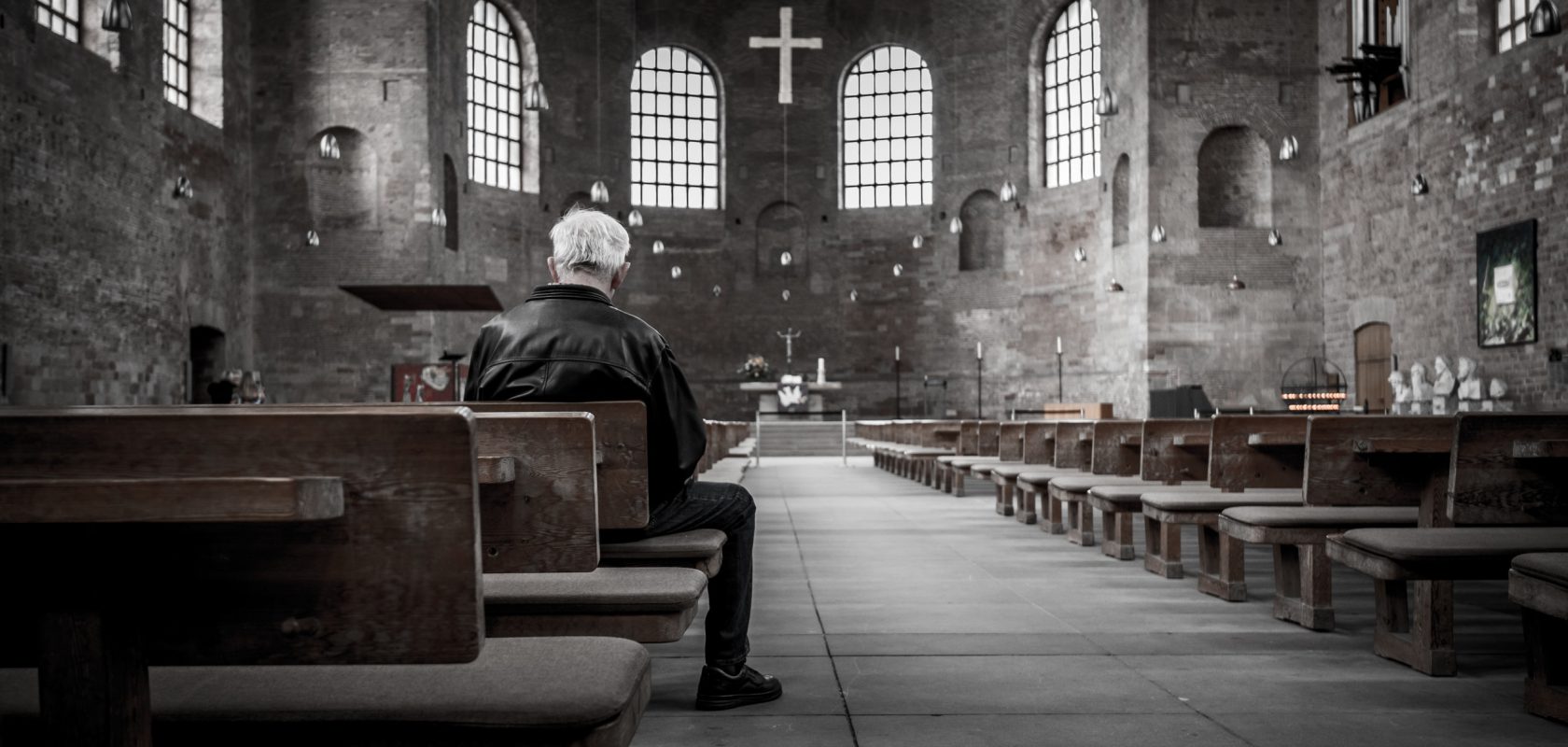Today, we’re going to get to know author and pastor, Sam Allberry. Sam is the assistant pastor of St. Mary’s Church in Maidenhead, U.K. and is the author of several books including, Connected: Living in Light of the Trinity,Lifted: Living in Light of the Resurrection, and Is God Anti-Gay.
I wanted to interview Sam primarily because of he is a celibate Christian pastor who experiences same sex attraction. Since Sam does not believe that same-sex relations are within the will of God, he’s committed to a life of celibacy.
I must say upfront that Sam’s little book, Is God Anti-Gay, is one of the best books on homosexuality. So I’m super excited to have Sam on my blog!
PS: Sam, thanks so much for being willing to share your heart with us! I want to first ask how you came to the conclusion that God does not sanction same-sex relations? Did you grow up with this view? Or did you wrestle with the question for a while?
SA: I came to Christ late in my teens and only really started to think about this issue around that time. I remember hearing talks from the Bible on how sex was restricted to marriage, and was able to see that this was the clear teaching of Scripture. It has always made sense, given the purpose of sex within marriage. So I’ve never wrestled with it from a biblical standpoint.
PS: I must ask, what’s it like being a pastor who experiences same-sex attraction. That’s a pretty personal thing for everyone to know! What have been some of the struggles that come along with being a same-sex attracted minister?
SA: It is a very personal thing for people to know, but I think it is a helpful thing to be open about. We all struggle with sexual temptation, so in that sense I’m not different to anyone else. Pretty much every pastor struggles with some kind of sexual temptation. I’m just being a little more open about the particular kind I have struggled with. I think I am now so used to other people knowing that it doesn’t worry me. It doesn’t define me in the way I see myself, nor does it in any way define the ministry I have with my church family. There will obviously be other people out there who know me for this issue and nothing else, but that’s a small price to pay for being able to minister and teach on this.
Some of the struggles that come along with this would be common to any minister who is single: feeling a lack of companionship at times, and not having someone to share the ups and downs of ministry with.
But an additional one for me, as someone who speaks and writes on SSA, is the emotional toll doing so can sometimes take. It is a great privilege to be able to do so, but it can sometimes be very painful. Reading and listening to leading advocates of same-sex partnerships in the church can leave me feeling very low. It is painful to see the Scriptures distorted, particularly on an issue that is so close to home for me. And so I try to balance that kind of work with time doing things that I know will encourage me!
PS: And what have been some of the positive aspects? I heard you say somewhere that it’s given you a lot more compassion on people—not a bad virtue for a pastor to have! Can you expand on this?

There have been many positive aspects. God has shown himself to be unfathomably good through all this. The greatest joy in ministering on this issue is the opportunity it gives me to talk about the goodness and sufficiency of Jesus. It has been wonderful to be able to testify to that on many, many occasions. It has been an encouragement to see God use the testimony of folks in my situation. We’ve had many people write to us at LivingOut.org, from all over the world, sharing something of their own struggles with SSA and saying that for the first time they now know that they are not alone in battling this as a Christian. I’ve been moved to tears many times reading through such comments.
Another positive has been the friendships God has given me through all this. First sharing about this issue with others had the effect of making close friendships even closer. Being out and about in ministry on this has also introduced me to some wonderful brothers and sisters. God has been very generous in the support and friendships he has provided for me.
And yes, coming to terms with this issue in my own life has been humbling. It might be helpful to think of it as a painful means of blessing. I am sure it has made me more sensitive to some of the struggles and pains of others than I might otherwise have been. It has reminded me how lost I would be without God’s grace. God has shown me his goodness and love in countless ways.
PS: What would you say to affirming scholars and Christians, who have a somewhat negative view of (“forced”) celibacy. For instance, Matthew Vines says that “Celibacy is a gift, and those who do not have the gift should marry” (God and the Gay Christian, 50). Would you say you have the “gift” of celibacy? Or how would you respond to Matthew’s statement?
SA: For as long as someone is single, I consider them to have the gift of singleness. It wouldn’t make sense for someone to say, “I’m married, but I don’t think I have the gift of marriage”; nor do I think it would make sense to say the same thing about singleness. If you are single, you have the gift of singleness and God’s will is for you to avoid sexual immorality. Both marriage and singleness are gifts from the Lord: both bring particular blessings and opportunities. It is not easy being celibate in Western culture today, but finding it difficult does not mean we cease to be called to it. Part of the issue is that the church, along with wider society, has forgotten what it used to know about friendship and community. We have made too much of church life about couples and nuclear families. So I disagree with Vines, but also think the church needs to do far more to help those seeking to be faithful to God as single people.
PS: Do you identify yourself as “gay?” I know it’s a big debate among evangelicals whether Christians should carry such an identity. What are your thoughts on this?
I don’t identify myself as “gay”. My concern in doing so would be that it would suggest that my identity is in my sexuality – whether I’m acting on that sexuality or not. It is a tricky issue, because words like “gay” mean slightly different things to different people. But I find “same-sex attracted” to be a more accurate descriptor for me. Others have taken a different position, and for good missional reasons – wanting to recapture some of the language the gay lobby has taken over in recent decades. I’ve huge. huge respect for the likes of Wes Hill. I just don’t feel comfortable using that kind of language to describe myself. Same-sex attraction is part of what I feel; it is not who I am.
PS: Sam, thanks so much for your time! You’ve got 1 minute to tell our audience anything you’d like. Encourage us. Challenge us. Whatever you like. Go for it…
SA: Here’s what’s most helped me in recent years: Who you are in Christ is who you truly are. It is the real you. Living the Christian life is not you trying to be some other person that’s not really you. You are most you when you are embracing the identity he has given you and are seeking to live it out.
You can learn more about Sam through his community blog, “Living Out,” where you can find resources, testimonies, and many solid thoughts on homosexuality.











